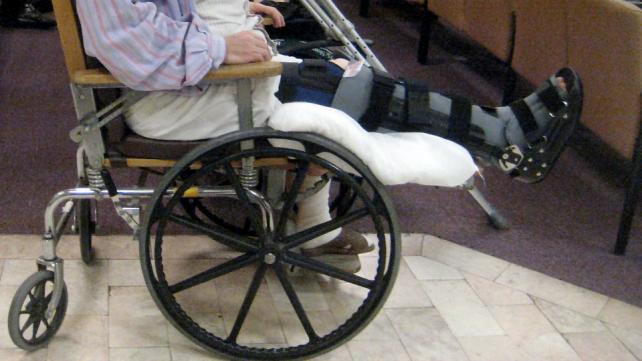
As Muslims we are taught from the instructions in the Quran and the life of the Prophet, peace and blessings be upon him, not to judge one another based on surface things, for the only thing that distinguishes us is piety.
And since none can judge what is in the heart of another, the task of being al-Hakeem (the Judge) only belongs to Allah.
Unfortunately as a handicapped Muslim woman, I have learned otherwise.
Discrimination of the disabled: a disease that needs to be cured
I have seen that Muslims all say they discourage discrimination, but when push comes to shove, everyone shows a different side.
I realize that if this exists within our community, then it is a disease that we must seek to cure.
I ‘m 20 years old, and I have an apparent disability, for which I use crutches and have a leg brace.
I don't normally rely upon the help of others, but when someone does help me by opening a door or lifting something heavy, it is greatly appreciated.
When I was younger, I got the impression from the Pakistani community that someone in my situation couldn't get married, or at least not without someone feeling sorry for them.
When I started practicing Islam, Allah blessed me to meet people who didn't think that way.
It was a Mercy from Allah to find people who actually believed that everyone has a different challenge that has been to given them, and some have it more apparent than others.
Not everyone has such a fortunate experience.
A case of discrimination against the disabled
Tasneem Anwar, a disabled Muslimah, and Yusuf Ahmad (their real names are not being used to protect their identity), wanted to get married.
When Yusuf told his family of his desire to marry Tasneem, they disagreed fervently.
Without exactly inquiring about the extent of her disability, they insisted Yusuf would end up divorcing Tasneem, for she wouldn't be able to have kids nor cook and clean for him. None of these things were true.
When hoping that some Imams could step in to work as mediators, Tasneem and Yusuf were surprised to find that people were quick to slander and assume.
Influential members of their local Muslim community judged Yusuf's intentions, saying that there is no need to engage in this act of “pity”by marrying Tasneem.
Tasneem also bore the brunt of this attitude, with these same people belittling her and her family by saying they had “tricked” Yusuf into marrying her and did not fully disclose to him the full extent of Tasneem's disability.
Leaders must fight against discrimination of the disabled
Imams and community leaders have a special role to play in the Muslim community. They're supposed to be teachers and examples. They also have the duty to uphold the rights of the Muslims, even when they are not in front of them. This means not slandering or promoting discrimination against fellow brothers and sisters.
Unfortunately Tasneem and Yusuf learnt the hard way that they shouldn't count on that.
Though in the sight of Allah their marriage might have been possible and blessed, in the sight of Muslim leaders and officials, it was quite the opposite.
It is noble for the brother to have taken a step towards a sister in such a condition. Sadly, not everyone could do that.
For Muslims, everything is a trial and a choice on a path where the course can change drastically based on one step or the wrong intention.
In Tasneem and Yusuf's case, the trial was to stand up in the face of discrimination and speak for someone whose rights were being taken away as a disabled Muslim.
The course could have changed drastically if community leaders had done what was Islamically required: to mediate between Tasneem, Yusuf and his family, or to not get involved at all and retain confidentiality.
Instead, what they found was quick judgments and no desire to understand.
Tasneem and Yusuf have decided not to get married.
Allah will be the judge of people's conduct. For He is All-Seeing and All-Hearing. And to Him belongs all Judgment.
Photo Attribution: http://commons.wikimedia.org/wiki/Category:People_in_wheelchairs#mediaviewer/File:New_Orleans_Clinic_wheelchair.jpg



Comments
I love how you highlighted
I love how you highlighted the positive aspects of it as well! Alhamdulillah! We recently started a series in our ‘gratitude and positivity’ section and the first collaboration was with a deaf muslimah. We’d love to collaborate with you for a post as well in shaa Allah :) http://ayeina.com/gratitude-for-abilities-my-disability-gave-me/
Discrimination against disablewomen
Disable women have right to live they need happiness people should forward and take a bold step to help them where alldisablemuslim women will go we should encourage them help them they are looking for suitable partner and job too
Location
Add new comment